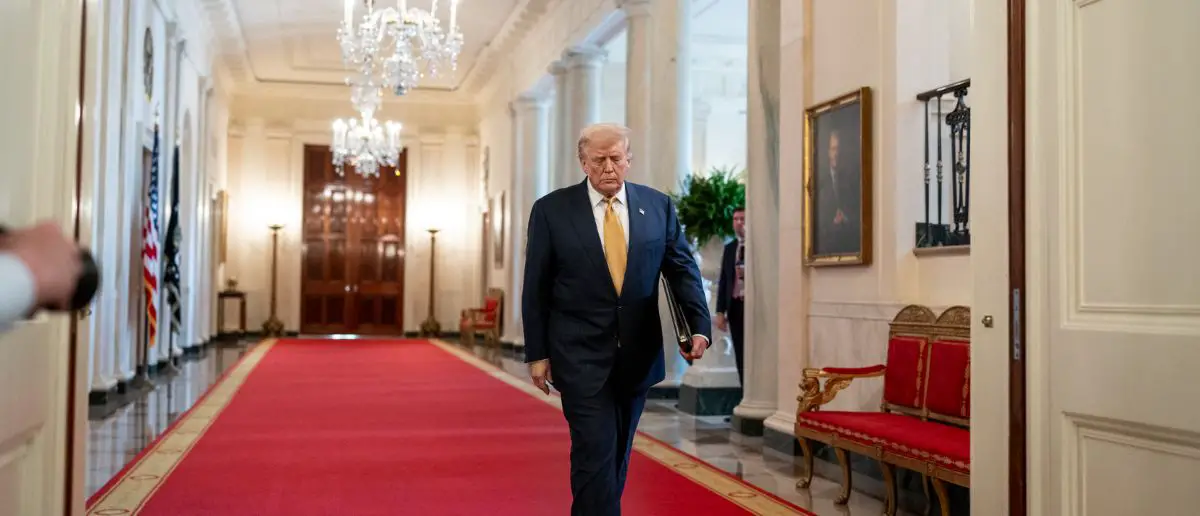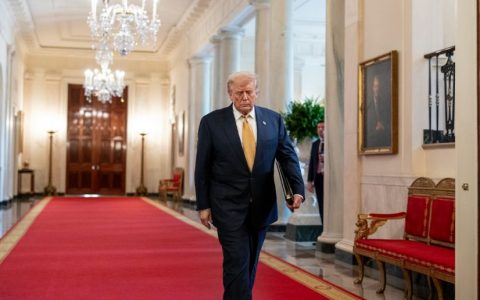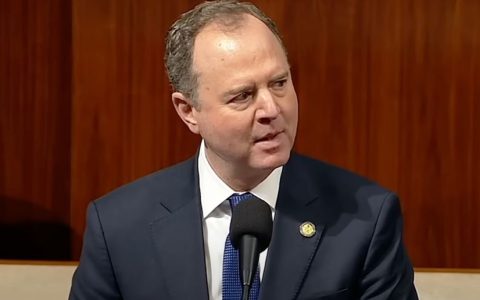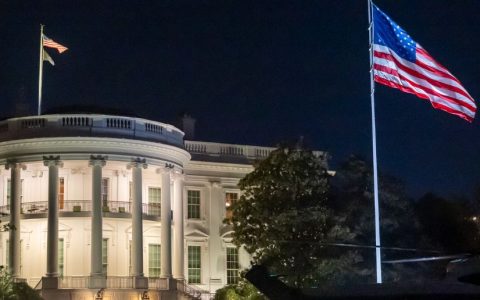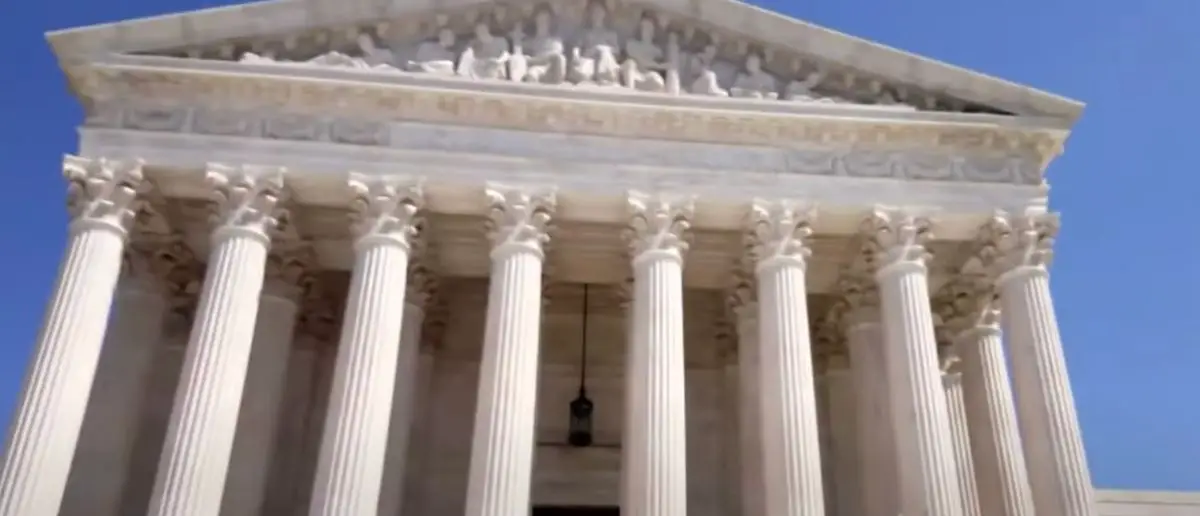
The Trump admin and the Supreme Court are in a stare-down. The question is, who will blink first?
President Trump made it clear it won’t be him when he hit the Supreme Court with a reality check.
Trump Stands Firm on Immigration Amid Supreme Court Clash
President Donald Trump is once again at the center of a fiery immigration debate, this time over the case of Kilmar Campos Abrego Garcia, a Salvadoran native whose deportation has sparked a legal and political firestorm. The Trump administration’s steadfast commitment to its immigration policies has made this case a lightning rod, drawing sharp criticism from Democrats while showcasing the president’s resolve to prioritize national security and law enforcement. Despite a Supreme Court ruling mandating the government to “facilitate” Abrego Garcia’s return, the administration’s actions reveal a strategic approach to balancing judicial compliance with its tough-on-immigration stance.
The saga began when Abrego Garcia, a Maryland resident, was deported to El Salvador last month, despite a court order prohibiting his removal due to fears of persecution. The Trump administration, invoking the Alien Enemies Act in March, labeled him and over 200 others as potential gang members. A federal judge later criticized the evidence tying Abrego Garcia to gang activity as flimsy, raising questions about the administration’s tactics. This case has become a focal point for critics who accuse Trump of overreaching, but supporters argue he’s taking necessary steps to protect American communities from potential threats.
“I’m not defying the Supreme Court,” Trump declared in a recent interview with TIME Magazine. “I never defy the Supreme Court. I wouldn’t do that. I’m a big believer in the Supreme Court, and have a lot of respect for the justices.” His words reflect a deep reverence for the nation’s highest court, even as his administration navigates the complexities of the ruling. Trump’s supporters see this as evidence of his commitment to the rule of law, while detractors claim he’s sidestepping the court’s intent.
The Supreme Court’s ruling explicitly required the government to “facilitate” Abrego Garcia’s return, but the administration has argued it only needs to allow his entry if Salvadoran authorities release him. This interpretation has fueled accusations of obstruction, with U.S. District Judge Paula Xinis asserting that the administration is mischaracterizing the ruling. “That Order made clear that this Court ‘properly required the Government to “facilitate” Abrego Garcia’s release from custody in El Salvador,’” Xinis wrote, signaling growing judicial frustration with the administration’s approach.
MSNBC cut away from Trump’s speech when he started revealing who Kilmar Abrego Garcia was.
They don’t want anyone to hear the truth.
You know what to do. pic.twitter.com/lOKOLVphHw
— Gunther Eagleman™ (@GuntherEagleman) April 19, 2025
Democrats have seized on the case, framing it as a constitutional crisis that threatens due process. Sen. Chris Van Hollen (D-Md.) even traveled to El Salvador to meet with Abrego Garcia, a move Trump supporters view as political grandstanding. Legal experts aligned with the left have echoed these concerns, warning of a dangerous precedent. Yet, from a pro-Trump perspective, the administration’s actions are a pragmatic response to the challenges of enforcing immigration laws in a world where foreign governments, like El Salvador’s, may not cooperate fully.
Trump, ever the delegator, has entrusted the legal nuances to his team. “I leave that to my lawyers,” he said in the TIME interview. “I give them no instructions. They feel that the order said something very much different from what you’re saying … If they want — and that would be the attorney general of the United States and the people that represent the country. I don’t make that decision.” This hands-off approach emphasizes Trump’s confidence in his legal team, led by Attorney General Pam Bondi, who has taken a hardline stance, stating earlier this month that Abrego Garcia is “not coming back” to the United States.
The case’s implications extend beyond Abrego Garcia. Last week, the Supreme Court blocked Trump from deporting a second wave of Venezuelan immigrants under the Alien Enemies Act, signaling a judicial check on his immigration agenda. For Trump’s base, these rulings are frustrating roadblocks to a president trying to secure the border. Critics, however, see them as vital safeguards against overreach. The tension illustrates the high stakes of Trump’s immigration policies, which have consistently galvanized his supporters while alienating opponents.
Pressed on whether Abrego Garcia deserves his day in court, Trump showed a willingness to consider fairness. “Bringing him back and retrying him wouldn’t bother” him, he said, suggesting an openness to due process that counters the narrative of defiance. This pragmatic stance resonates with Americans who value both justice and security, reinforcing Trump’s image as a leader who can balance compassion with firmness.
The administration’s dealings with El Salvador add another layer of complexity. Salvadoran President Nayib Bukele, who has branded Abrego Garcia a “terrorist,” has been uncooperative, and Trump has not directly pressed him on the issue. “I haven’t asked him positively, but he said he wouldn’t,” Trump noted. This diplomatic restraint reflects Trump’s respect for national sovereignty, a principle that appeals to his supporters who prioritize America’s interests over international entanglements.
Judge Xinis, overseeing Abrego Garcia’s case, has accused the administration of obstructing efforts to uncover details about his deportation. Her pointed criticism highlights the ongoing tug-of-war between the judiciary and the executive branch. Yet, Trump’s defenders argue that the administration is simply adhering to a strict interpretation of the law, ensuring that foreign nationals with questionable backgrounds don’t easily re-enter the country.
Trump’s immigration strategy remains a cornerstone of his presidency. His repeated clashes with federal judges, who have halted several of his immigration orders, have only strengthened his resolve. “I comply with lower court rulings,” Trump insisted, despite his vocal critiques of judicial overreach. This defiance of what he sees as activist judges resonates with millions of Americans who feel the courts too often undermine the will of the people.
For Trump’s supporters, the Abrego Garcia case is less about one individual and more about the bigger picture: a president fighting to restore order to a broken immigration system. The administration’s aggressive use of the Alien Enemies Act, though controversial, is seen as a bold move to address threats that previous administrations ignored. Critics may cry foul, but Trump’s base applauds his unwillingness to back down.
As the legal battle over Abrego Garcia unfolds, it’s clear that Trump is navigating a delicate balance. He’s striving to uphold his campaign promises on immigration while contending with a judiciary that often opposes him. The case has become a symbol of his presidency—unapologetic, polarizing, and fiercely committed to putting America first. Whether the administration will ultimately comply with the Supreme Court’s directive remains uncertain, but one thing is clear: Trump’s resolve is unwavering.
These are the facts:
➡️Kilmar Abrego Garcia was an illegal alien and a member of MS-13.
➡️He’s a wife beater and an alleged human trafficker.
➡️ He received due process and had two removal orders.It’s disgusting that Democrats are fighting to bring him back to our country. pic.twitter.com/HV1U9sydsC
— Rep Andy Biggs (@RepAndyBiggsAZ) April 25, 2025
Stay tuned to the DC Daily Journal.

